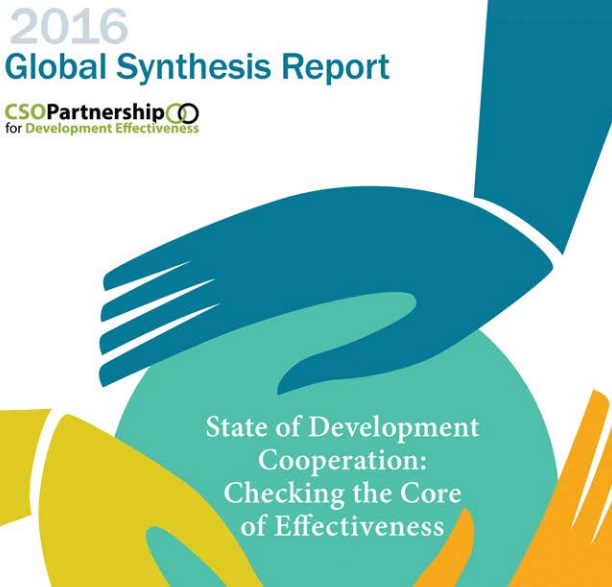
It was my honor to write the Palestine chapter assessing the implementation of global commitments to aid effectiveness. It was originally published here from page 127-134.
It’s a pretty harsh critique. In it, I say:
“Global commitments to international aid reform, including the Rome Declaration on Harmonization (2003) through the Busan Partnership for Effective Development Cooperation (2011), have in no way challenged the donor community’s politicized approach to Palestinian development. The Oslo Accords (1993) and the Paris Protocol (1994) established a hegemonic paradigm within which all “development” takes place. Western donors fund only work that advances or is consistent with the two-state solution: the ends justify the means. Western and west-affiliated governments use their aid programs to entrench their political objectives, even when there is blatant contradiction with principles like local ownership and mutual accountability that are enshrined in global commitments. There is still essentially no space for engagement with alternative paradigms even in 2016, fully seventeen years after the planned expiration of the Oslo peace process and despite overwhelming evidence of its failure. These observations are consistent with the 2015 Palestine report that noted the historical importance of civil society and the increasing constrained space in which it operates (CSO Partnership, 2015).
Aid is a significant variable in the Palestinian economy representing up to 46 percent of GDP in some years. Dependency on aid controlled by politically-motivated donors decreases Palestinian control of development in ways not unlike the Israeli occupation itself. In fact, Palestinian aid critics say that international aid actually undermines genuine Palestinian development — directly, by controlling development resources; and indirectly, by enabling Israel to maintain its occupation, colonization and dispossession of Palestinians. This not only contradicts normative global commitments on aid and development effectiveness but, it can be argued, contradict the far stronger obligations these donors have to comply with customary international law enshrined in the Geneva Conventions and strong global instruments designed to promote peace and human rights. One danger of relying on normative commitments is that principles may be reframed as best practices (e.g., transparency) rather than as rights (e.g., Right to Information), thus making rights claiming more difficult.
On the other hand, to the extent that the global aid reform commitments suggest a new political will to change relationships between donor and recipient countries, they represent a valuable opportunity: context-sensitive aid; ending policy conditionality; addressing predictability of aid flows; stronger transparency and accountability; and more inclusive involvement of civil society. In Palestine, however, the actual impact of these global commitments appears cosmetic at best. In many cases, local experts note regression in key areas. Global commitments to aid reform are not visible in the discourse of donors or the Palestinian Authority (PA). Palestinian civil society also does not leverage the global commitments in any strategic or concerted way to demand accountability.”
I invite you to read the full report and share your comments here.